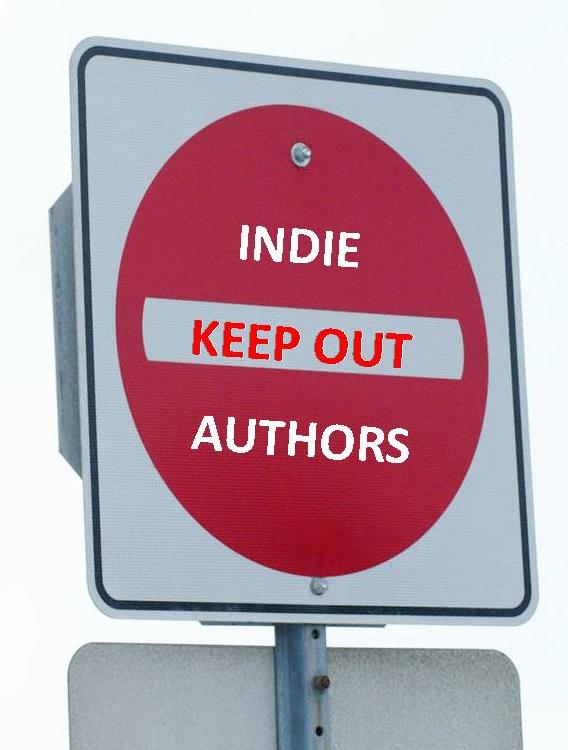 The indie-author blogosphere (you didn’t know we had one, did you?) lit up this week with fallout from an article Hugh Howey wrote about the shabby treatment of indie authors at the RT Booklovers Convention in New Orleans last weekend.
The indie-author blogosphere (you didn’t know we had one, did you?) lit up this week with fallout from an article Hugh Howey wrote about the shabby treatment of indie authors at the RT Booklovers Convention in New Orleans last weekend.
Howey said he had heard from several people who attended the conference that indie authors – even bestselling ones like Liliana Hart – were labeled “aspiring authors” and shunted to a separate room during the book signing event. And while trad-pubbed authors each had three feet of table space for signing their books, indies were crammed in like sardines next door.
As near as I can make out from the comments, the “aspiring author” thing was either a single comment by a volunteer who misunderstood the difference between the two rooms; or a title attendees picked for themselves upon registration, and if they accidentally ticked “aspiring” instead of “published” on the registration form, it was their own damn fault. Continue reading ““Aspiring” Indies: Same Stuff, Different Day”

 The independent publishing movement is maturing at an astonishing rate. Everything is still evolving and changing daily, but anyone who is paying attention can see we look a whole lot different than when we started.
The independent publishing movement is maturing at an astonishing rate. Everything is still evolving and changing daily, but anyone who is paying attention can see we look a whole lot different than when we started.